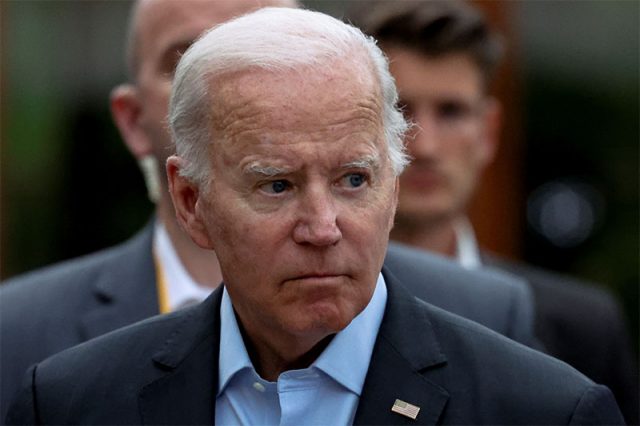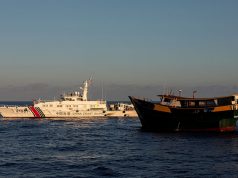
WASHINGTON— U.S. President Joe Biden on Monday signed a national security memorandum to fight illegal fishing, part of pledged efforts to help countries combat alleged violations by fishing fleets, including those of China.
The White House said in a statement that it would also launch an alliance with Canada and the United Kingdom to “take urgent action” to improve monitoring, control, and surveillance in the fight against illegal, unreported and unregulated (IUU) fishing.
U.S. officials have vowed to introduce policies to better battle illegal fishing, particularly in the Indo-Pacific, as part of stepped up engagement with the region to counter China’s growing influence.
Some countries in the region chafe at China’s vast fishing fleet, arguing its vessels often violate their 200-nautical-mile exclusive economic zones (EEZ) and cause environmental damage and economic losses.
Senior U.S. administration officials told reporters in a briefing that the memorandum directs agencies to work toward “ending human trafficking, including forced labor … while promoting safe, sustainable use of the ocean.”
The Department of Labor, the Department of Defense, the U.S. Coast Guard, and other enforcement agencies would engage with private and foreign partners to “investigate fishing vessels and operators expected to be harvesting seafood with forced labor,” the official said.
The effort was not targeted at any specific country, but the official said China was one of the largest violators.
“The PRC (People’s Republic of China) is a leading contributor to IUU fishing worldwide, and has impeded progress on the development of measures to combat IUU fishing and overfishing in international organizations,” the official said.
“The PRC has a responsibility to uphold these commitments as a flag state and actively monitor and correct … fishing fleet activities in other countries’ waters,” she said.
China says it is a responsible fishing country that has been cooperating internationally to clamp down on illegal fishing, and that it fishes in relevant EEZs according to bilateral agreements.
“The U.S. accusation is completely untrue and does nothing to protect the marine environment and promote international cooperation in sustainable fishery,” Liu Pengyu, spokesman for China’s embassy in Washington, said in a statement.
Earlier in June, the Philippines accused China of illegal fishing in its EEZ, a complaint backed by the U.S. State Department.
The U.S. Coast Guard has said illegal fishing has outpaced piracy as the top global maritime security threat, and risks heightening tensions among countries vying for overexploited fishing stocks.
U.S. Indo-Pacific policy coordinator Kurt Campbell said in May that countries in the region were cooperating to step up patrolling and training efforts, as well as sharing technologies to track vessels engaged in illegal fishing that turn off electronic transponders.
—Reporting by Michael Martina, David Brunnstrom and Kanishka Singh; Editing by Sandra Maler









